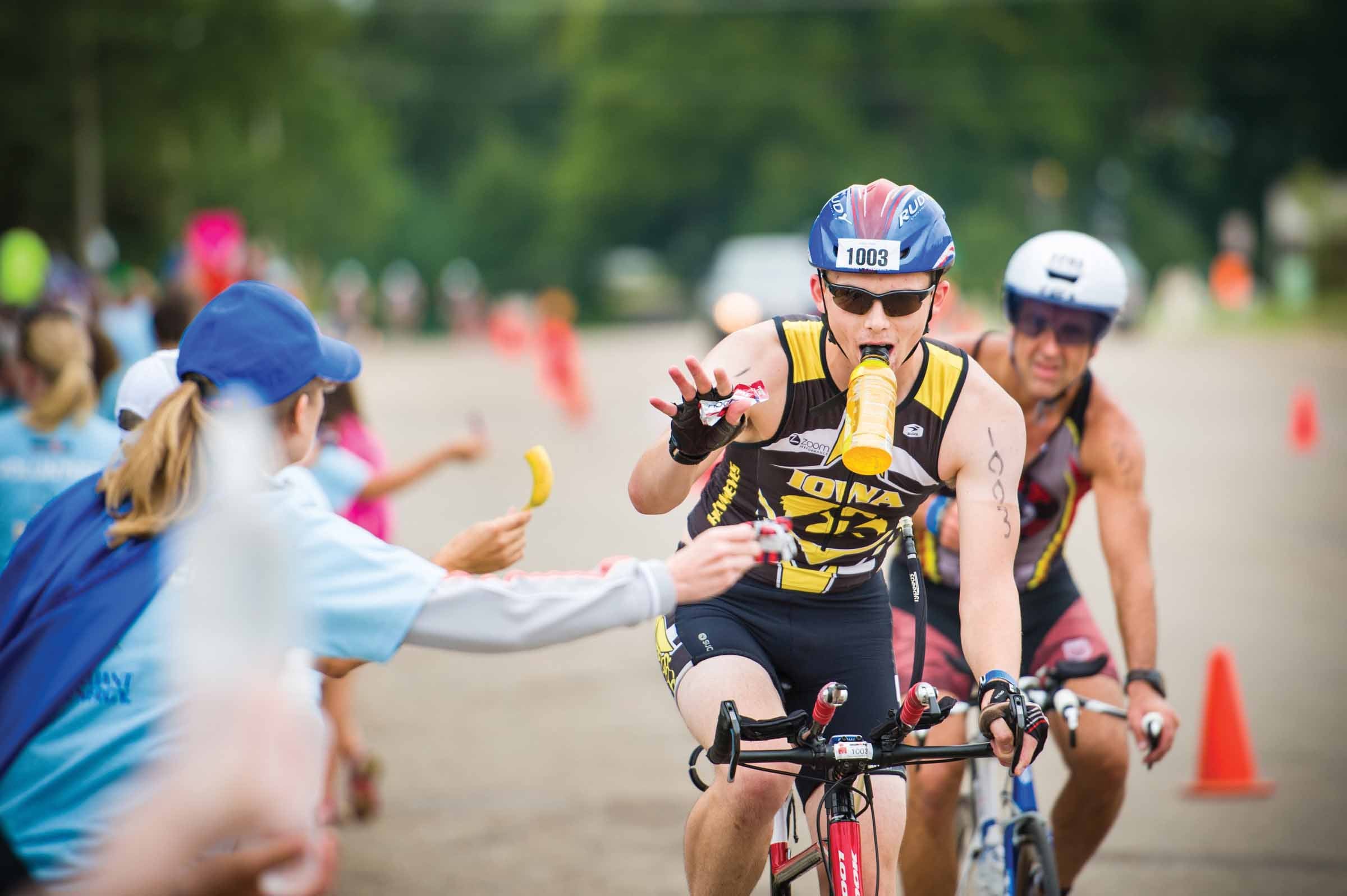Nutrition Guidelines For Your First Olympic Triathlon

Photo: Gary L. Geiger/Endurapix
Q: What are some general fueling guidelines for my first Olympic triathlon?
A: Just like you have to put in a little more training to complete an Olympic-distance triathlon compared to a sprint, you also need to put more thought into your nutrition plan.
First of all, it’s never too early to start practicing your nutrition plan because it takes time for your digestive system to adapt to absorbing and processing food during intense exercise. Plus this gives you time to experiment with different sports nutrition products to figure out which type (bar, gel, chews, sports drink) and brand works best for you. Aim for 30–60 grams of carbohydrates, 24–48 ounces of water and 400–800 milligrams of sodium per hour. In an Olympic triathlon, start this about 10–15 minutes after getting onto the bike and continue throughout the run.
You should also plan out what you are going to eat for dinner the night before as well as your race-day breakfast. Both of these meals should be high in carbohydrates and low in fat. Dinner options could include rice, quinoa, pasta, steamed vegetables, potatoes, lean protein and fruit. Think bananas, toast, oatmeal, bagels, fruit or cereal for breakfast.
Do you have more questions about your first (second, third, or tenth) tri? We have an active and supportive community of everyday athletes and experts in Team Triathlete who are willing to help. Plus: Members have exclusive, near-instant access to the entire editorial staff at Triathlete. Help is just an @ away! Become an Outside+ Member and join Team Triathlete now!
A few other key guidelines:
– Load up on nitrate-rich foods (e.g., beets, leafy greens, rhubarb). Nitrates are converted into nitric oxide in the body, which increases oxygen delivery to muscles as well as energy production inside them. I recommend that my athletes consume one can of beet juice daily for seven days prior to a race, plus an additional dose with breakfast on race morning.
– Consider caffeine, which boosts athletic performance by decreasing your perceived level of effort in the brain. Taking a caffeinated gel 30 minutes prior to the swim start and keeping a couple in your tri suit for the end of the bike or the run can give you an edge.
– Think about adopting a plant-strong diet. Basing your diet on fruits, vegetables, whole grains, beans, nuts and seeds makes it easier to get to and maintain race weight, aids in recovery by providing abundant antioxidants, and strengthens your immune system, which means fewer workouts skipped due to illness.
– Follow the golden rule: Don’t try anything new on race day!
Tara Martine, M.S., R.D., L.D.N. is the Health Promotion Registered Dietitian at Tyndall Air Force Base near Panama City, Fla.